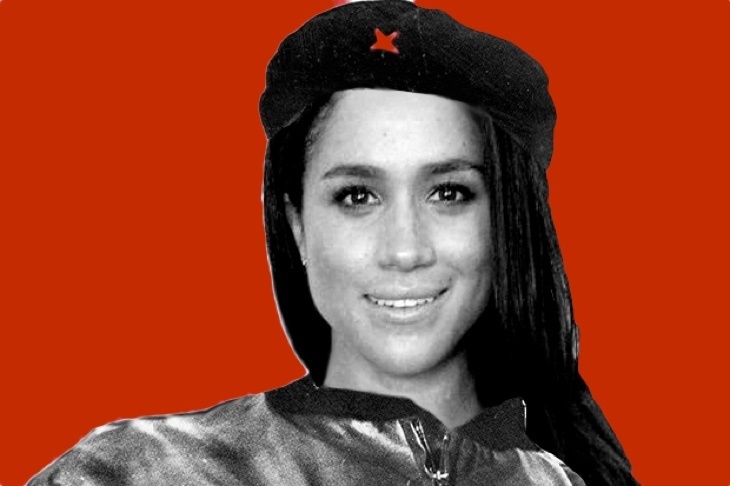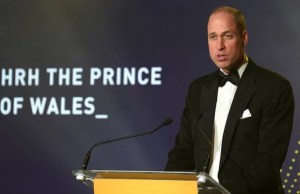The wedding of Meghan Markle to Prince Harry has no precedent in the history of the Royal family. How will a relatively ordinary person, albeit a celebrity, cope with the rigid etiquette and stifling sense of entitlement of the culture into which they are marrying? I’m referring, of course, to Harry. From the moment he becomes Ms Markle’s husband, he will be expected to observe a code of behaviour designed to trip up the newcomer.
I’m not kidding, alas. Since she was a small girl, Meghan has breathed the purified air of the liberal American ‘filter bubble’ – so called because it ruthlessly filters out people, ideas and even casual turns of phrase that are deemed ‘inappropriate’.
God help the prince, for example, if he implies – even in jest – that it’s a woman’s job to do the washing up. Procter & Gamble made that mistake back in the 1990s, when they put out a TV advertisement for dishwashing liquid claiming that ‘women are fighting greasy pots and pans’.
Enter the 11-year-old Meghan, who wrote to first lady Hillary Clinton to protest at this sexism and appeared on national television to ask: ‘How could somebody say that?’ Procter & Gamble caved in and changed ‘women’ to ‘people’.
It was a historic moment, reminding girls ‘that their voices are in fact not small at all and that they can effect change’. Or so we were assured by a United Nations ‘advocate for women’, who at a conference in 2015 was moved almost to tears by the little girl’s achievement. Only a cynic would suggest that the effect would have been even more powerful if the speaker hadn’t been television actress Meghan Markle.
‘She will surely become the most left-wing member of the Royal family,’ saysThe Guardian, which gushes as deferentially as a Pathé newsreel as soon as her name is mentioned. But the paper has a point – and not just because the competition isn’t exactly stiff.
Meghan is a fan of Noam Chomsky, the 89-year-old socialist intellectual and American cheerleader for Jeremy Corybn. She describes his book Who Rules the World? as ‘a great read’ – and so it is, if you blame US foreign policy for all the evils in the world. Critics found it selective in its targets, but that is unlikely to worry Ms Markle: as an international campaigner for women, she is – to her credit – big on racism and the stigma surrounding menstruation; less vocal on female genital mutilation or the untold indignities visited on women by Islam.
Awkwardly, one of the public figures that Chomsky most despises will be a guest at the Royal wedding: Barack Obama. But the former president is unlikely to take offence. Meghan studied international relations at Northwestern University, Illinois, in the aftermath of 9/11. For her generation of well-heeled liberal students, Chomsky is a national treasure, a sort of anarcho-syndicalist Queen Mother. She must be thrilled that, in a recent interview, he predicted that she would ‘shake up the Royal family’ – though he didn’t say how.
One possibility is that she will act on her convictions. If women can be ‘empowered’ by a change in the wording of a dishwashing ad, then think how gloriously they would liberated by a ‘strong, confident’ feminist, as Meghan describes herself, who shrugs off male-imposed, class-ridden customs. She could decline to curtsey or be curtsied to, and refuse to be addressed as ‘Your Royal Highness’.
Alternatively, she could indulge her taste for virtue-signalling jargon while soaking up her husband’s hereditary privileges. What better way to silence ‘inappropriate’ comments than with the icy smile that the Windsors reserve for breaches of protocol?


















